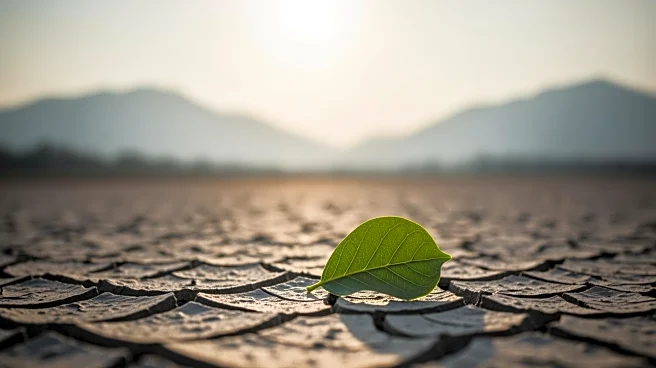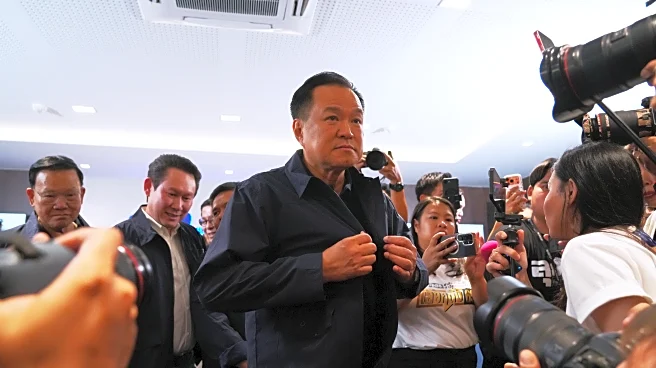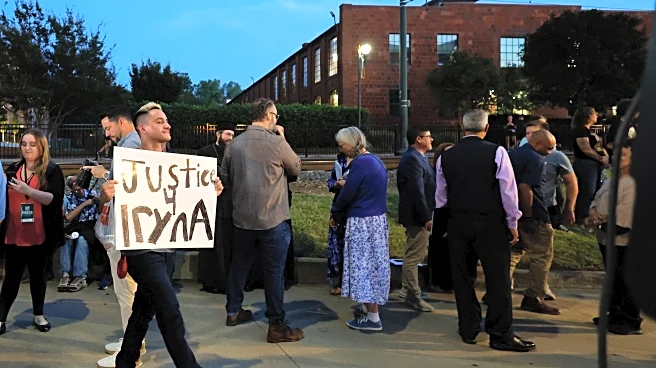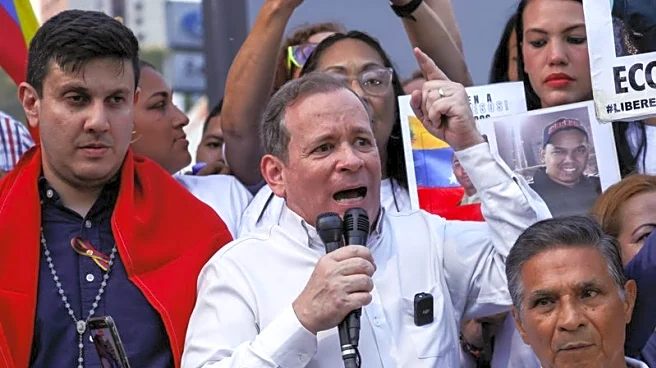What's Happening?
The COP30 climate summit in Belém, Brazil, concluded with a last-minute agreement that many delegates and environmental groups found disappointing. The final deal did not include a roadmap for phasing out fossil fuels or significant new initiatives to
combat deforestation, despite calls from over 80 countries. COP30 President André Corrêa do Lago announced plans to create non-binding roadmaps for these issues. The summit did achieve some progress, such as agreements to triple adaptation finance and elevate Indigenous voices. However, the lack of a comprehensive fossil fuel phaseout plan was seen as a major shortcoming.
Why It's Important?
The outcomes of COP30 highlight the challenges in achieving global consensus on climate action, particularly regarding fossil fuel reduction. The absence of a binding agreement on fossil fuels underscores the influence of petrostate lobbying and the difficulties in balancing economic interests with environmental goals. The summit's limited achievements may impact global efforts to meet climate targets and could influence future international climate negotiations. The focus on adaptation finance and Indigenous rights represents progress in addressing climate justice, but the overall results may fall short of the urgent action needed to combat climate change.
What's Next?
Following COP30, countries will need to continue negotiations to develop effective strategies for reducing fossil fuel dependence and protecting critical ecosystems like the Amazon rainforest. The creation of non-binding roadmaps by the COP30 president may serve as a starting point for future discussions. The outcomes of the summit could influence the agenda and priorities of the next climate conference, COP31, scheduled to be held in Antalya, Turkey. The ongoing dialogue among nations will be crucial in advancing global climate action and ensuring that commitments made under the Paris Agreement are met.
















